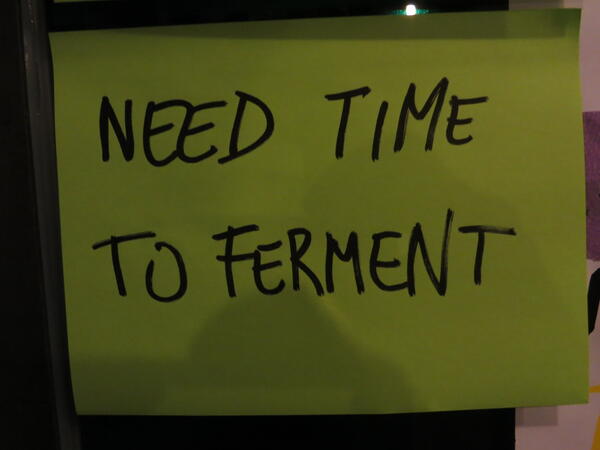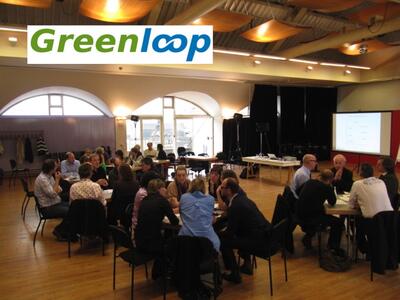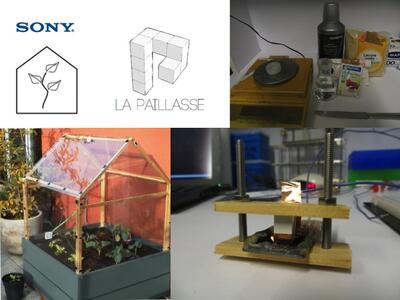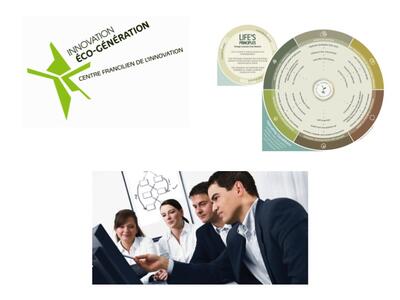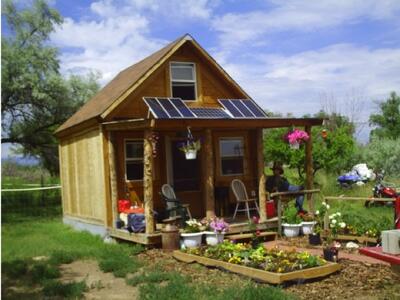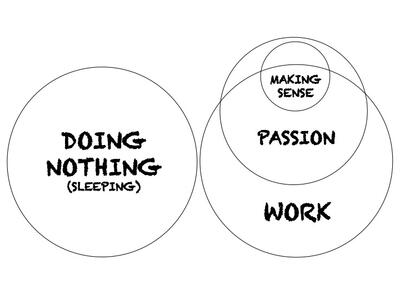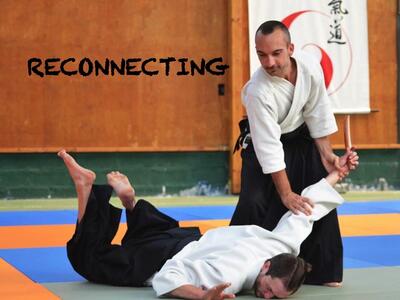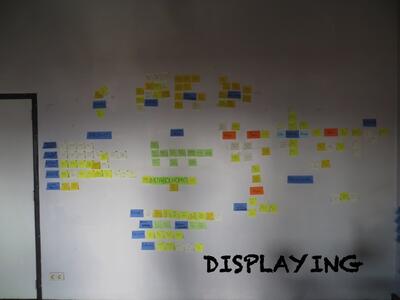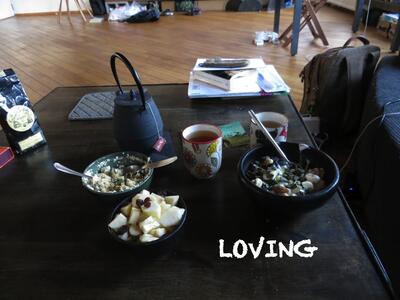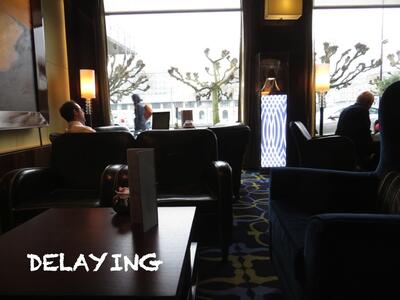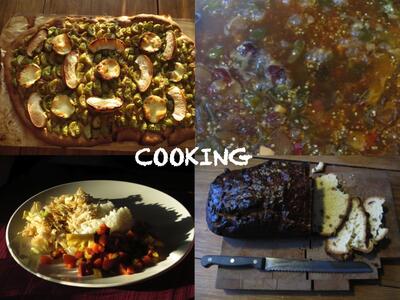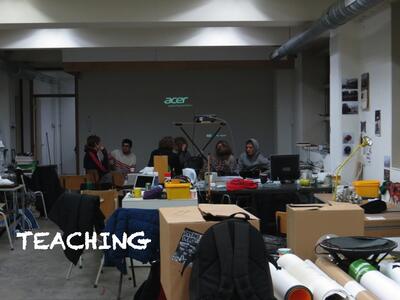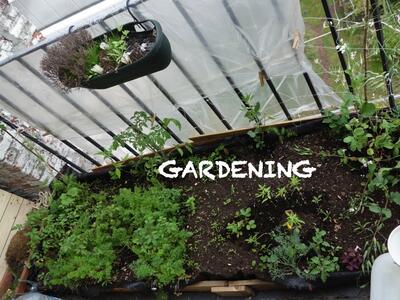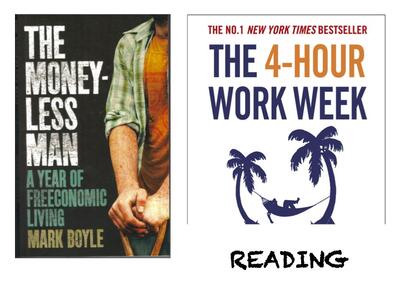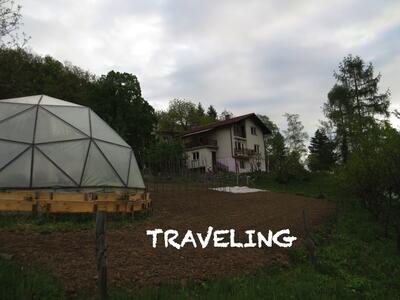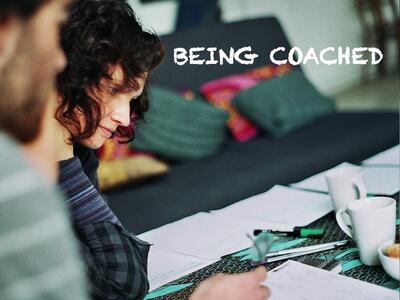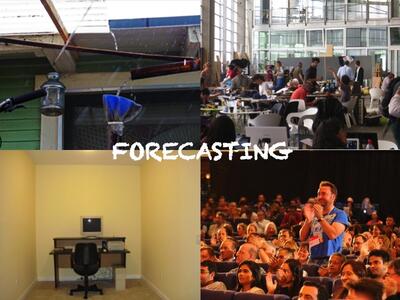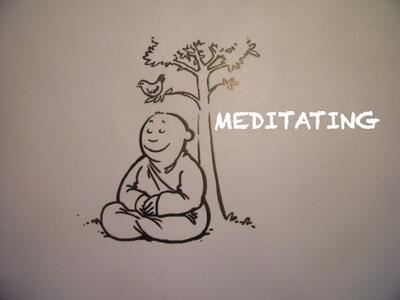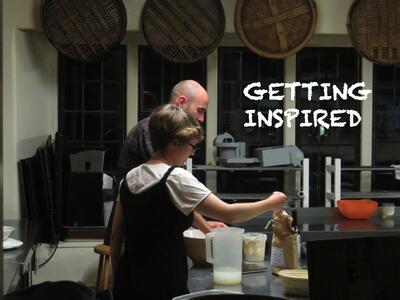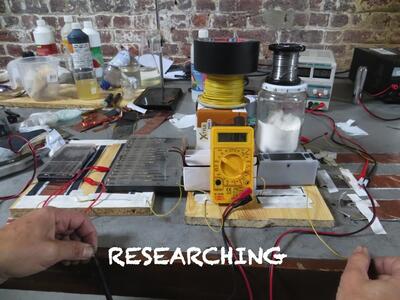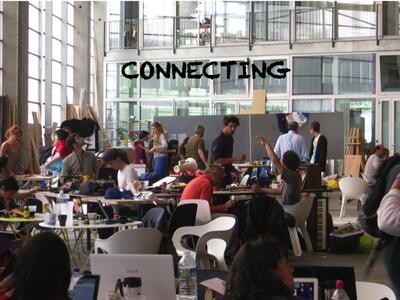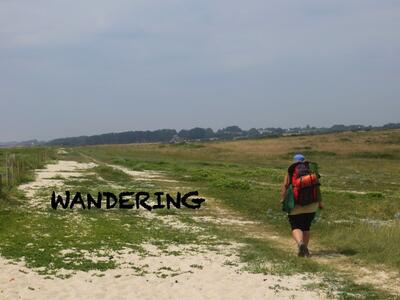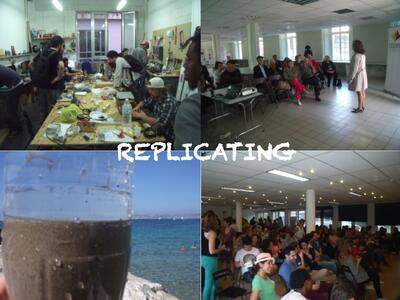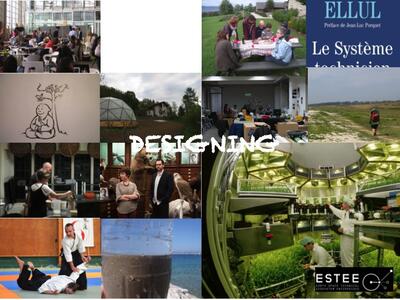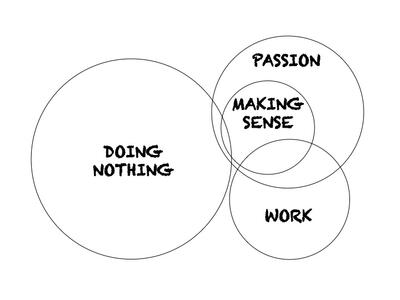This is an old revision of the document!
Re-Designing A Lifestyle: Summarizing One Year of Transiency
Michka Mélo, Member and ex-MacroTransient at FoAM
I have been very lucky. One of the lucky few able to spend a year to experiment, well, anything. FoAM offered me a room, breakfast, lunch & dinner, a little money, and fifteen years of knowledge on change management. For the rest, I was free, as long as I would document what I did.
After spending some time getting used to have very light external constraints on my daily life, I timidly started to try out new activities. I learned stuff. I failed. I changed my mind. I discovered that internal constraints were way more tough to get rid off than external ones.
While trying out stuff, I got rid of the Self-Sufficient lifestyle hypothesis I had drafted before coming. I decided to let room for things to happen. I worked on my fear of emptyness. I fought against procrastination and pernicious addictions. I unraveled some nodes strongly tightened deep inside, and possibilities opened up.
The second half of the year flew way too fast. I am still living under the bounce of the overwhelming encounters and experiences I lived. These experiences paved the way to go. I finished the year by trying to set up the conditions to keep space for experimentations and deep personal work in my post-Transiency life. Because more than meticulously designing a bright future,, what seems the most sound to me is to spend time to know better who I am, and work to find answers to the deepest questions that torment me.
I am not sure I can remember the last time life has felt so passionnating.
My year spent as a MacroTransient at FoAM is now over. One year of not being a student, not being an employee, not being unemployed. One year with no expectations. One year of incredibly pure freedom of action, movement and thought. One year to re-design a lifestyle, figure out tough life choices, defining a personal and professional identity. One year of careful help from FoAM to try to answer that crazy question: “What do I want to do with my life ?”
Below is an attempt to summarize this year, and maybe give you a hint of how this feels, or even give you the will to go through the same intense and rewarding process.
Initial Conditions
I had met the FoAM team in 2012, as I was an intern at Greenloop. I was in the last year of my engineering studies, and except writing my thesis, I did not really knew what my future was made of. I was quite disappointed by the world of science and technology I was coming from, and trying to find a way to integrate other dimensions to make (bio)technologies more relevant to society. It was the right moment to enter the temple of Generalism.
However, I was proposed two nice jobs in Paris. One at Sony Computer Science Laboratory, where I contributed to the development of the P2P Food Lab project, for which we developed a bio-sourced temperature sensor at a biohackerspace called la Paillasse.
The other job was as a Biomimicry Promoter in a governmental agency fostering innovation, Paris Region Entreprises. I met wonderful entrepreneurs, (tried to) talk them into using biomimicry to solve their (eco-)issues, and developed the first version of an open-source exploration tool for professionals wanting to include Biomimicry in their strategy.
After these two passionating working experiences, I was even more ready for a Transiency. Maybe the question I wanted to focus on was less my professional life than my whole lifestyle. Including where, for who, and the way I would work, but also the space I would leave for the rest of my life.
The Self-Sufficiency Hypothesis
During one year working full time in Paris, I observed several phenomenon.
- Even though the work I was involved with was very interesting, too much of a good thing is no good. I felt I lacked diversity in my activities. I especially lacked outdoor and body-involving activities.
- Living at the core of a 10-million megapole made me even more conscious of the unsustainability of our (urban) lifestyles. At my individual scale, I found quite counter-productive to spend so much time & energy at work, to earn money, to buy stuff I could actually do myself, instead of buying it from obscure and sometimes unhealthy and socially-descructive industries.
Based on these observations, I formulated the hypothesis that I would better live a bit out the monetary economy. By improving my self-sufficiency, I would spend more time doing outdoor and body-involving activities, like gardening. I would increase my resilience, by learning many different know-hows which may be useful, especially in case some unsustainable industries would collapse. By using fine-tuned appropriate technologies, I would free some time to volunteer for the cause of moneyless groups, involved at local or global scale.
In addition to correcting my lifestyle unbalance, this hypothesis would also improve my consistency, as I would reduce my dependency on industries and practices I disagree with because of their environment and social impact.
I entered this Transiency with the idea to implement this hypothesis, or at least test it. It did not turn out exactly how expected.
Winter - Decelerating
After a very intense year, and a quite active travelling period in the autumn, the first thing I needed to do was to decelerate. A quite tricky process when all your standards tell you that action is the only valuable thing. I had to face the emptyness of some days, during which tiredness & procrastination were the only two words coming to my mind to define them. Anyway, a few important deep processes took place during the first months of this transiency.
Reconnecting
One of the first actions I took when I arrived in Brussels was to sign up to an Aikido class.
After more than seven years of focusing on mind development, my body needed to catch up. I knew it would be difficult, and I was looking forward to this quiet period to take the time to start the tricky task to reconnect my body and mind.
Why Aikido to reconnect body and mind ? One of the things I also needed to start working on was my recurring panic whenever I was confronted to any somewhat violent situation. I therefore wanted to practice a martial art, as I though it would help me both reconnect body mind and help me deal better with violent situations. Aikido being one of the closests martial arts to the “non-violent” philosophy - or at least my professor advocated so on his website, I thought it would be a good starting point.
As expected, it has been far from easy. For the first time since years, I felt completely dumb at something, like if I had no grasp on how to learn gestures. I had started the classes three months after most of the students, and constantly felt holding them back with my stupid ununderstanding. Moreover, the (fake) violent situations were quite intense, and being put to the ground more than fifty times in two hours, as well as having to get back on my feet everytime was far from easy, especually in a setting were I already felt dumb. Self-esteem was having a hard time.
Now, after a year of practice, I can feel some progress. I feel more body conscious, and I feel like I am a bit less sensitive (or frozen) in slightly violent situations. New students have arrived in the dojo, and they helped me find out I had learned something. I also decided to go to the training max once a week, to make the work less emotionnally demanding. I feel I can progress more easily now, and I am willing to continue.
Displaying
In December, I gathered all my notebooks since June 2012, when the Transiency had been proposed to me. I had carefully noted down since then every single thing I wanted to do once I would be a resident at FoAM.
So I took a whole load of post-its, wrote down every single activity and posted them on the wall, attempting to sort them out.
After two weeks of scrutinous transcription, I ended up with a ten-years amount of things to do. Problem: a Transiency is one year. Some choices were to be made. I hate choices.
Loving
Fortunately, some sweetness was here in the middle of the two hard challenges I just mentionned.
Amélie and I had been together for a few months at the beginning of this Transiency. Thanks to this new period opening in my life, we now had breakfast together every morning. We also spent the Aikido-free (on my side) and teaching-free (on her side) nights together, often doing nothing else than having a tasty (vegetarian) lunch together, and chatting.
Compared to the lifestyle I had in Paris, in which I would pile up conferences, projections and meetups on top of my full working days, I can say that Amélie really helped me discover the world of Doing Nothing. Strangely enough, it seems that my influence on her was quite similar. Good for us.
Delaying
In January, I was lucky enough to receive a job offer from my Master Thesis Supervisor. He was (and is) starting a small company on the topic of artificial closed-ecosystems, a life-support system which uses living organisms to filter water, cycle nutrients and transform carbon dioxide back into oxygen. Such a system is essential for long travels in space, as we cannot carry everything we need to survive several month in space if we single-use it. Such technologies are not only relevant to space though, they are also relevant to sustainability, as they can lead to very efficient pollution control and recycling technologies.
He proposed me to join in as the first employee of the structure, starting from March.
Even though the Transiency work had not been easy so far, I could not think about stoppping so early. I had a lot of deep personal work to do, probably way more that what I envisioned in the first place, and I would definitely not even be started with most of it by March. I had to say “no”.
I understood in this experience how hard it can be to say no to an offer when you do not know exactly how to phrase what you would do instead, and you can only intuitively feel it is very important.
Fortunately, my Master Thesis Supervisor did not take it the wrong way, and offered me the job again last August. But more on that later.
Cooking
FoAM Brussels being a temple of cooking, I spent some time trying a few recipes, and cooking lunch occasionally to the FoAM team.
In addition to reducing my reliance on industrial food, it also helped me decelerating & reconnecting body & mind.
Teaching
In September 2013, Cocky Eek from FoAM Amsterdam proposed me to come as a guest lecturer in her Tactile Research Lab, a class she is teaching to ArtScience Students from the Royal Academy of Arts in Den Haag for several years now.
I felt very honored to be proposed to co-teach in such an environment, and was very happy with this experience. We helped a small group of students try to figure out how they could integrate their artpiece in long time frames, make them “sustainable” in the deep initial sense of this word.
I was confronted their with highly creative students and a complete new way of teaching, way more personal, intricated with the personality & life trajectories of these students.
I wish I could bring part of this way of teaching to my engineering school, as I think it would help have engineers concerned with actual challenges (and not only technical fantasies), conscious of their personal issues, and more able to question the myths and taboos of the society they live in.
Gardening
One of the initial objectives of this year was also to learn practical know-hows to include more DIY in my daily life.
FoAM Brussels gave me a “carte blanche” for a garden on their small balcony. I went to purchase seeds to the marvelous http://www.bio-logiques.org/index.php?option=com_content&view=article&id=175:fraternites-ouvrieres-a-mouscron&catid=100&Itemid=518|Fraternités Ouvrières garden, and started some seedlings. Which died when I traveled for a few days - see below. I started again some seedlings, which died again during my next trip. A few lived through my periodic travels, and managed to give some fruits - mainly red radishes, carrots and tomatoes - both yellow and red.
This experiment in itself gave me an idea of how hard it is to rely on my own food production, and how devoted and sedentary I had to be. Which made me re-think completely the self-sufficiency hypothesis.
Spring - Seeding
After decelerating, and hitting in different ways the reality wall, I needed to plant seeds of what a post-Transiency life could be. I was lucky, it was Spring. A good period to plant seeds.
Reading
I needed to feel inspired, and learn from others' experiments. So I picked up two experiment-based books from my reading list: The Moneyless Man, and The Four Hour Workweek.
The Moneyless Man is about the experiment Mark Boyle performed over one year. He tried to live without earning, spending or using any money during one year. It is great book, easy to read, and full of tips on how to reduce your reliance on a destructive monetary economy. However, I could not find any answers to the two most pressing questions I had with moneyless lifestyle:
- How to get healed in case of a big incident ? Mark Boyle relied on the rights he precedently acquired to the British Security system. However, the book gives hints on how to self-heal yourself with plants, and how mutual aid provides you help when you need it the most.
- What happens to your social life with less coherent people ? Mark Boyle says that it was one of the most difficult aspect of his experiment. He could not spend time with friends in money-based social activities, which is OK for one year, but for more ? Does it make sense to quit constructive friendships for the sake of consistency ?
I think it is important for me to be able to meet people which opinions are far away from mines, to understand better their viewpoints and what builds the difference between me and them. I have the feeling that if I live a moneyless or self-sufficient life, I would cut myself out of such opportunities.
The Four Hour Workweek is a book about entrepreneurship. This world has always interested me, as I like the strength and perseverance of people getting involved in the creation of a company. However, I always felt distant from them in the sense that I am not attracted by the idea of devoting all my time to one single project, thereby risking to lose everything in case of failure.
This book gave me a quite uncommon answer. What if your company was designed to bring you money back to do whatever you want to do ? Even though I do not agree with all the strategies proposed in this book, I like the idea of designing your income source so that you can maximize your freedom of lifestyle - and not through a “make-your-money-out-of-your-passion” approach. It was a very pleasant, inspiring and thought-provoking read.
The full reading list of this year is available here.
Traveling
One of the things I disliked with my studying & working lifestyles was the forced sedentarity induced by the fact of having to follow courses / having to work in a give place. However, my initial hypothesis was to become self-sufficient, which means even more sedentarian.
It was one of the conclusions of this Transiency: I prefer to travel than to garden. As I discovered this in April, I traveled a lot ever since.
The very first important trip of this year was to Slovenia, a place where Amélie lived for a couple of years. After visiting Ljubljana and some very nice friends there, we moved to the countryside to spend some time at Rolling Hedgehog.
Rolling Hedgehog is a self-sufficiency experiment, led by Amélie's ex-flatmates in Slovenia. We spent three day here helping in the garden, drinking schnaps & kombucha, gathering bear's garlic to prepare Forest Pesto, and eating cheerfully all together copious meals to fill our bellies emptied by the countryside work & fresh air.
It was a wonderful stay, however I understood that I would not transform it into a lifstyle. I would love to introduce slices of several weeks of this lifestyle in mine every year, but I would also like to be able to escape it, and see other people, other places, other parts of the world.
The self-sufficiency hypothesis was dead.
Being Coached
Besides being actively followed by the FoAM Brussels' Core Team, I had the chance to go through a coaching program with a professional coach, Vali Laliotti.
During six sessions, we tackled deeply rooted brakes which left me doubtful and/or discouraged. Through very precisely phrased and chirurgically-targeted questions, Vali helped me unravel deep nodes in order to constructively & effectively move forward.
For instance, after six sessions, I was able to precisely phrase what I felt was my mission in life. I also learned practical ways to be more efficient in my work, especially with unpleasant tasks, and how to deal with emotionnally perturbing events.
I think that this process was one of the two most effective ones in the whole Transiency. I feel like I am working - and doing stuff in general - more effectively, more peacefully, and - most importantly - with more passion.
I will talk about the second process later.
Forecasting
Between April and June, the FoAM Brussels Core Team guided me through the Transiency Scenarios process. This scenario planning process, fed by the works done by FoAM on this topic for quite a few years now, aimed to use futurology methodologies to understand better what my possibles futures are as an individual, and help me better understand dynamics at stake and make decisions on my life trajectories.
At the end of the process, we obtained four scenarios representing extreme situations. Scenario narratives can be found here:
Such scenarios can be used as a compass. Thanks to this work, I could better understand which of my decisions would guide me to one or the other futures.
We also designed a masterplan of what to do from today on to reach the possible futures, which helped understand which actions I should start now in order to reach the future I want to implement.
Meditating
At our very first Transiency meeting, I was talking with Maja, Rasa & Nik about my issues of body-mind connection, and my focusing issues I was experiencing since the middle of my studies. At that time, Maja had advised me to go through the Mindfulness 8-weeks course (MBSR), she thought it would help me with this. Her Dutch-speaking mindfulness teacher advised me a French-speaking one, and because of affluence & scheduling issues, I could only start with the cycle in May.
It was worth the waiting.
I remembered mentionning the quest for “inner peace” to Vali during our first session. This cycle was basically a series of workshops on how to find inner peace. With very simple meditation techniques inherited from buddhism, we would quiet whatever wind or storm was troubling our souls, slowly but surely.
I felt more body conscious, and did recover most part of my focusing abilities. But I also managed way better with emotionnally perturbing events, increased my perseverance in unpleasant or tedious tasks, managed to get back to contemplation on a daily basis, and logically started to find beauty more frequently on my way.
You may have guessed it: with coaching, going through this process was the most positively transformative experience I lived this year, and I cannot not stop being lyrical about it.
If you are from Brussels and French-speaking, I heartfully advise you to follow the cycle with Ilios Kotsou.
Getting Inspired
In May, I was invited by Eva Bakselett whom I met at the Biochymickal Arts to teach in a workshop at Schumacher College, a mythical teaching place devoted to ecology I had heard of numerous times. It was a wonderful experience, mainly because of the incredible people I have met there.
On the picture on top of this section, you can see two people. The guy is a former graphic designer. After three months of work, he found out that working behind a screen was not his way. So he knocked at the neighboring baker's door and asked for an apprenticeship. He got accepted, and is now a (talented) baker for several years. On the picture, we can see him teaching how to make bread from a grain polyculture flour to a Horticulture apprentice from the College.
And he is only one example of the amazing people I met at the College. And he is only one example of the amazing people I met this year in Totnes, Nantes, Marseille, Paris, Brest and so on.
I want to keep meeting diverse people in the upcoming years. With diverse interests, diverse opinions, and amazing life trajectories. Because it is pleasant, enriching, and it helps me re-shape my vision of the world.
Summer - Experimenting
Researching
In June, my friend Paul Granjon came over for one week. Paul is an artist who works on co-evolution of humans and machines. Lately, he has been dealing with e-waste a lot.
We had a one-week long research workshop, during which we tried to build supercapacitors out of dead PC batteries.
It was my first “technical” research experiment in a few months. Without having stated it very clearly, I think that I was in the process of escaping “technical” research, for several reasons. Mostly, I found research very frustrating. Trying to make something work for weeks, mostly failing, and having once in a while a bleak enlightment when something worked was not for me.
However, reasearching with Paul was completely different. We had a very nice week, I learned tons of stuff, and even though we did not manage to have anything working as well as we wish it would, I felt it was very pleasant.
I think that five weeks of mindfulness training helped me deal with the frustration inherent to research. But, also, having someone like Paul as a teammate changed everything. We had very nice discussions, for instance on the wider context of the research we were performing.
After this week, I was no longer sure I wanted to give up on “technical” research.
Connecting
Strengthened by the experience with Paul, I headed towards Nantes, and the Summerlab organized by Ping.
This event offers a temporary experimental space to researchers of all kinds, from writers to tailors, including programmers, furniture designers, or musicians.
During one week, we would meet every morning to discuss what were the ongoing projects, and then we would spend the day working on them. Every night there was a party. Wonderful week.
I met tons of people from diverse communities, and got people excited on the two projects I proposed: building a dynamo from a printer DC motor, and experimenting with microbial fuel cells.
This event confirmed that the essence of what I want in this period of my life is: traveling, meeting people with diverse backgrounds & ideas, and doing stuff with them.
Wandering
I also spent some holidays with Amélie, and later in the summer with my family. During this period, I just spent time with people I like, contemplated many diverse and beautiful landscapes, walked, played games, and read a few serious books.
During this period, I could feel the experiments and works of the past few months sediment deep inside, fermenting a little bit maybe, and starting to produce new flavors in my present and potential future life.
Wandering is also very important. Spending some time far away from the daily routine, loosing some time in between, is vital. It seems that the new stuff I seeded earlier needed this stage for a healthy development.
Autumn - Preparing
After seeding, letting things develop, experimenting, and getting a few answers, most of the time of the Transiency had flown away. Now has come the time to prepare for the future life, post-Transiency.
Replicating
When an experiment is performed once, it brings a few insights. But to confirm these insights, replication is needed.
I spent most of my autumn expanding the positive experiences I had this year. I went one week in Paris, for a symposium on Biomimicry, and another one on Technique & Degrowth. Then, I brought my microbial fuel cells to Marseille for the What the flok ? festival. Guillian Graves and I gave a talk about our Biomimetic Kettle in the European Center of Excellence in Biomimicry (Senlis, France) and in Brest. I went to Lausanne, to discuss a potential inclusion in a start-up, and enjoyed the NipConf. Finally, I brought the microbial fuel cells back to Nantes for a workshop at Plateforme C, Ping's fablab. Besides this, I performed some research on microbial fuel cells here in Brussels.
All of these experiments were positive, and confirmed that I was heading the right way for my post-Transiency life.
Designing
I was left with the tricky part: designing the lifestyle. Now that I knew most of the components, how could I fit them together in an smooth way ?
Travelling around to meet people and do stuff with them. Mostly people with low budgets. Keeping a freedom of actions & movement while still earning some money.
The current hypothesis I will try from January on is the following:
- Most of my income may come from my work at a small start-up, based in Lausanne, mentionned above in the “Delaying” section. It is going to be a very interesting job, in an entrepreneurial context, in which we will develop useful technologies for depollution, ecosystem restauration, and recycling. As I will most probably be working 20% (one week a month) in Lausanne, I will have three to four weeks a month free for other stuff.
- During these periods, I will partly be traveling around to meet & visit interesting people working in “edgy” multi-disciplinary communities.
- I will also spend some time in Brussels, meeting the local communities here I did not take the time to visit yet, and keeping some days available to start new projects at FoAM. I want also to keep some time to read, and explore Belgium more seriously than I did so far.
- I will keep spending some time with people I like, both in Brussels and elsewhere, and some time wandering around, to let space for things to happen.
(Un)Conclusion - Lessons Learned
My work will now to test the second hypothesis highlighted in the section above.
Again, I think that the lifestyle balance will be quite good.
In terms of consistency, I changed a little bit my mind. My “purist” vision of consistency between opinions and actions felt inhibiting, as most of the non-marginal action in this society would bring me to induce some destructive consequences somewhere in the world.
After discussing about it with may different persons, I decided to move towards a more experimental approach, which leaves the issue of consistency a little bit aside, and let space for potentially imperfect though impactful actions.
The question of consistency remains open, and I plan to spend some of my free time reading, discussing and experimenting about it.
In a way, I am back to the starting point of a new cycle, ready to test a new lifestyle hypothesis, strengthened with the experience, work and tools learned during this year.
This makes me think that the Transiency will, in my case, continue a little bit as a continuous process for a while.
I had to wrap this year up, I would say that I mostly started learned how to experiment at lifestyle scale. Below are a few lessons I learned during this year. May they be useful to you, if you feel like starting a similar process:
- External constraints are not the hardest. Once I had 100% free time to do whatever I would feel like doing, I started to feel lost. Things that appeared to be very desirable before looked suddenly pointless and boring. More importantly, I discovered that my fears were inhibiting the transformation more than my agenda. I needed to work on that, and take quiet time for it, because it can be very hard.
- The deepest personal work is the more transformative. Learning how to do my own laundry soap was great. However, coaching and mindfulness allowed me to understand better who I am, and unlocked some of my internal barriers to action.
- Free experimentation space & time is more relevant than a five-year detailed plan. I think that the most important ingredient for a life transition is the freedom of action, movement and thought. Leaving room for experimentation and trying stuff was an important condition to learning about myself, and my five year plans quickly became obsolete after small short-term experimentations. Fail soon, fail often, as they say.
